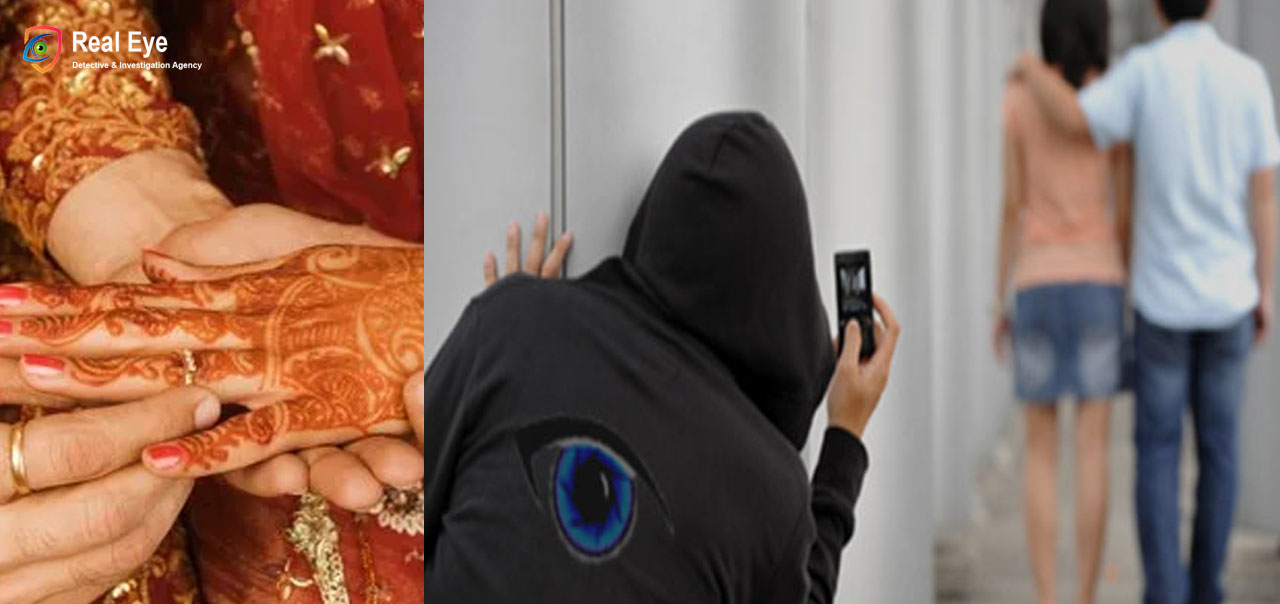Marriage is often seen as a beautiful union of hearts, a promise to love and cherish one another for a lifetime. Couples tie the knot with dreams of a blissful life together, hoping for a “happily ever after.” Unfortunately, life’s realities are not always so kind, and sometimes the once unbreakable bond between two people begins to crack. When suspicions arise and trust falters, post-matrimonial investigation emerges as a tool to shed light on the truth and provide clarity in uncertain times.
Understanding Post-Matrimonial Investigation:
Post-matrimonial investigation, also known as post-marital investigation, refers to the process of discreetly investigating a married individual or both spouses after they are already married. It comes into play when there are doubts, uncertainties, or unresolved issues within the marriage that may require validation or evidence.
These investigations typically involve:
- Infidelity Concerns: Suspicions of infidelity can shake the foundation of any marriage. Spouses may hire investigators to confirm or refute such doubts, hoping to find peace of mind or gather evidence for legal purposes.
- Child Custody Disputes: During divorce proceedings, child custody becomes a major point of contention. Post-matrimonial investigations can help determine the fitness of each parent and their ability to provide a safe and stable environment for the child.
- Asset and Financial Investigations: In cases where there are disputes over financial matters or concerns about hidden assets, investigators delve into financial records to uncover any discrepancies.
- Behavioral Patterns: Sometimes, changes in a spouse’s behavior or routine can raise concerns. Investigators may observe and document any suspicious activities or habits.
- Addiction and Substance Abuse Issues: If there are suspicions of addiction or substance abuse affecting the marriage, post-matrimonial investigations can gather evidence to support or refute these claims.
The Role of a Post-Matrimonial Investigator:
Post-matrimonial investigators are professionals trained to conduct thorough and discreet inquiries. They possess a keen eye for detail and an understanding of the legal and ethical aspects of their work. Here are some crucial roles they play during an investigation:
- Surveillance: Investigators employ surveillance techniques to monitor the movements and interactions of the subject in question. This helps in gathering concrete evidence and corroborating or dispelling suspicions.
- Gathering Evidence: From photographs and videos to documents and witness statements, investigators compile evidence to present a comprehensive picture of the situation.
- Background Checks: Investigators delve into the past of the subject to unearth any hidden history or potential red flags.
- Digital Footprint Analysis: In the digital age, online activities can reveal significant insights. Investigators may explore social media profiles, emails, and messages to understand the subject’s online behavior.
- Maintaining Discretion: Confidentiality is paramount in post-matrimonial investigations. Investigators are bound by a strict code of ethics to protect the privacy of their clients and the subjects involved.
Ethical and Legal Considerations:
As with any form of investigation, post-matrimonial inquiries must be conducted ethically and within the confines of the law. Respect for the rights and privacy of all parties involved is crucial. Investigators should never engage in illegal activities or infringe upon personal boundaries.
Moreover, the evidence gathered should be authentic, unbiased, and relevant. Any misinformation or manipulation of evidence can lead to severe legal consequences and harm the reputation of the investigator and their client.
Conclusion:
Post-matrimonial investigation is a sensitive and delicate field, aimed at revealing the truth behind suspicions and uncertainties in a marriage. While it may seem like a last resort, seeking clarity through professional investigation can provide closure and peace of mind for individuals navigating challenging circumstances. By employing skilled investigators who uphold ethical standards, those seeking the truth can make informed decisions about their future, whether that means healing and rebuilding the marriage or moving forward with confidence in the next chapter of life.

